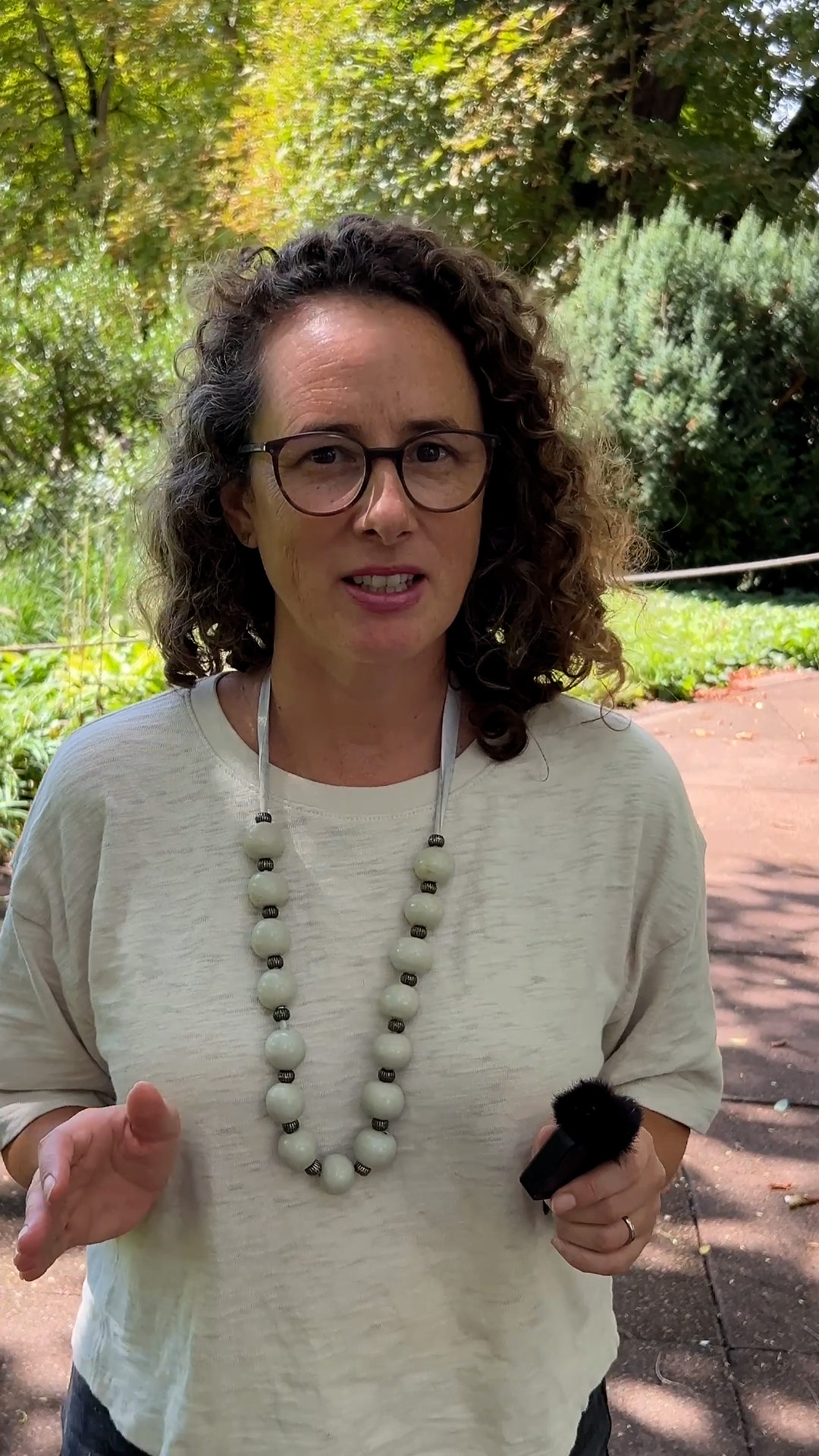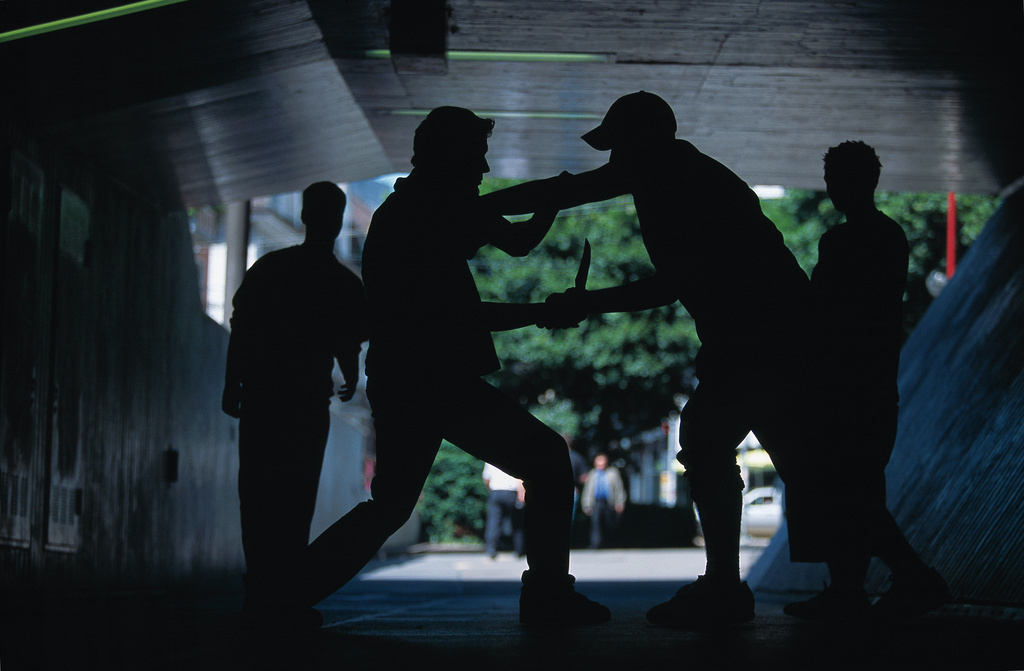
Teens sentenced over Munich attacks

Three Swiss teenagers accused of brutally attacking five people selected at random in Munich last summer have received heavy sentences.
The case has been headline news in Germany and Switzerland and has prompted questions about what to do about youth violence.
A district court in the German city gave the main defendant seven years for attempted murder and intent to inflict grievous bodily harm.
The second defendant received four years and ten months for the same charges, while the third received two years and ten months for intent to inflict grievous bodily harm.
The sentences pronounced were less harsh than prosecutors had wanted: nine, seven and six years respectively.
German juvenile law permits youth offenders to be imprisoned for up to ten years, considerably longer than is possible under Swiss law, which stipulates a maximum sentence of four years for underage offenders.
The court proceedings were closed to the public for the youths’ protection. At a news conference in Munich on Monday to announce the verdict, officials said the shorter sentences came about because the first attack was not considered attempted murder but grievous bodily harm.
The court, which sat for eight months, found the main defendant to be the initiator of the violence and instigator of the others, officials explained. He was involved in all the attacks.
Mitigating factors
They added that a mitigating factor was the fact that two of the teenagers had made confessions and an agreement on financial compensation for their victims had been made.
Within the space of 30 minutes during the early hours of July 1, 2009, the Zurich youths, who were visiting Munich on a school outing, physically assaulted five men, one of whom was disabled. One man was almost trampled to death.
“We just wanted to have a little fun,” one of the teens, who were then all aged 16, said later.
Reacting to the sentence, the lawyer for the young man who received the penalty of four years and ten months, said he was “not displeased” with the verdict. Lawyers for the three have not yet decided whether they will appeal.
Nicolas Queloz, professor of penal law and criminology at Fribourg University, says that the verdict could have been worse for the three.
Swiss and German law
“Compared with Swiss law, which stipulates a maximum sentence of four years for minors aged more than 16, the verdict is a heavy one, but I wouldn’t say that it’s harsh because it is relatively lenient compared with others cases in Bavaria,” he told swissinfo.ch.
Queloz says that France is, in fact, more severe than both Germany and Switzerland as it is increasingly “integrating” young people into the adult justice system.
The Munich case has raised questions over what to do about youth violence. But most Swiss experts are against tougher penalties – even if this goes against public opinion.
“Sentencing is essential. But I am totally against a law of ‘an eye for an eye’. A young person can always find a mentor, a teacher or someone else, who can help,” Queloz said.
For his part, Josef Sachs, a court psychiatrist in Aargau and expert in youth violence, says that the verdict goes against some people’s view of the Swiss not being tough enough on young offenders.
The teenagers will have to serve at least two thirds of their sentences, which means that the one serving seven years could be out after a bit more than four – around what he would have served in a young offenders’ detention centre in Switzerland.
“And this detention centre is at least as hard as a prison sentence in Germany,” he told swissinfo.ch.
End of school trips?
Another case of Swiss schoolboy violence – this time earlier this month in Rome – has raised the question whether school trips are viable.
Group dynamics and wanting excitement, especially when away from home, are often factors in such incidents, the experts say.
Queloz believes that trips may well become less popular. But Sachs says that teachers shouldn’t overreact as cases such as in Munich are still very rare.
He says trips should, however, be carefully prepared and that pupils shouldn’t be allowed out in the evenings unsupervised.
“I would therefore recommend a strict programme without too much freedom. Teachers do not need to always be with the pupils, there could also be a chaperone.”
Several questions in the Munich case are still open. It is not yet clear, for example, where the teenagers will serve their sentences. An agreement between Germany and Switzerland could allow them to come to Switzerland, but each case would have to be approved separately.
The three were accused of attacking three unemployed men in a Munich park, one of whom was disabled, in the early hours of July 1. Afterwards they pounded a German businessman almost to death. On the way home to their lodgings they attacked a student. In total, they injured 5 people.
The teenagers had drunk alcohol (less than one per mill) and smoked a joint beforehand.
The three, aged 16 at the time, were on a trip with their Küsnacht-based school.
The youths were arrested shortly after the attacks. They have been detained for 16 months. Their trial – behind closed doors which is usual in Germany in juvenile cases – started on March 8 this year and more than 40 witnesses and experts were expected.
All three youths have previous criminal records in Switzerland.
According to a Federal Police Office report, there are around 500 young serious and repeat offenders in Switzerland.
Most are young men with immigration backgrounds – most commonly from the Balkans and Turkey – who often join ethnically mixed gangs. They have difficult relationships with their family, school, work and drugs.
In French-speaking Switzerland, police also talk of problems with people from north Africa and some other countries in Africa.
(With input from Ariane Gigon and Renat Kuenzi)

In compliance with the JTI standards
More: SWI swissinfo.ch certified by the Journalism Trust Initiative












































You can find an overview of ongoing debates with our journalists here . Please join us!
If you want to start a conversation about a topic raised in this article or want to report factual errors, email us at english@swissinfo.ch.